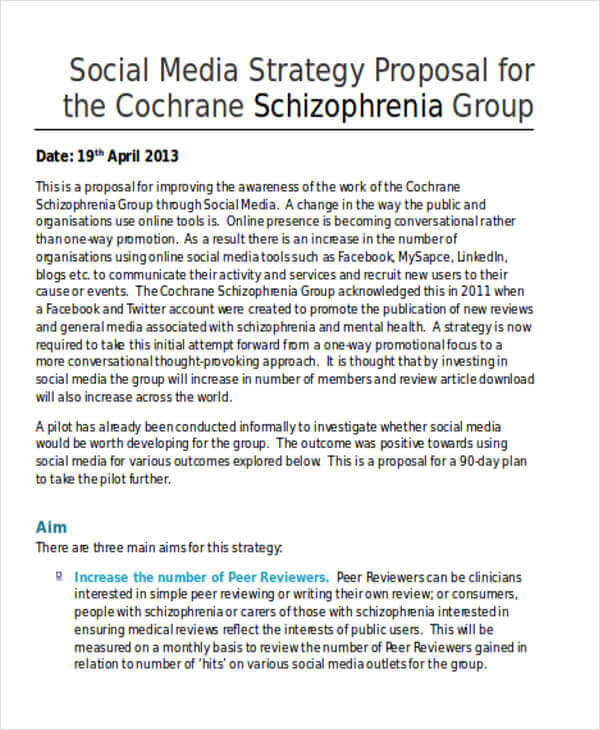A well done SMM proposal is a document that not only pitches your business to a potential client but also helps you secure the job. As a digital marketer, it is paramount that you not only pitch for clients but ensure that they are in for the long haul.
Like a cross between a contract and a pitch (for your business), a proposal formalizes the plans with the prospective client as well as establishing expectations between both parties. A great deal of research into the potential client is conducted before the final document is drafted and with good reason. The proposal shouldn't sound like it came off an assembly line.

Thus, what steps should be carried out while drafting the document?
1. Determine the client's business goals with the SMM proposal template
Unless you understand what the client is working towards, your final SMM proposal document may as well start the itch with a miss. If you know your client's business goals, you will understand exactly which social media strategies will help them realize these goals. Thus, the best approach to determine these goals is to use the S.M.A.R.T framework for setting goals.
S.M.A.R.T framework implies that your goals are:
- Specific
- Measurable
- Attainable
- Relevant
- Timely
Any plan to make a positive impact involves setting goals, and social media marketing is not excluded. Thus, setting goals within the proposal can help determine which content, voice and digital channels will be used. They also help you to scope out the time and financial resources that will be spent to achieve these goals.
2. Identify your client's audience with the SMM proposal template
When drafting the proposal, don't make assumptions on the target audience. Not all demographics apply to all businesses regardless of whether or not they are within the same niche. Thus, make use of the prospective client's social media statistics to understand the general outlook of who the business targets. You can delve deeper by using social media demographics as well as considering industry-specific statistics.
This area is where a relationship with the prospective client will go a long way since you can always ask for this data as you conduct your research. However, if a prior business relationship hasn't been cultivated yet, it is possible to garner the data from other social media analytics tools.
3. Understand the competition with the SMM proposal sample
Understanding the potential client's competition allows you to understand the market further. This segment also helps you know what audience segment to watch. Thus, it's advised that you identify at least three competitors whom you can benchmark when creating social media strategies for your client.
In this stage, it would be wise to invest in social listening tools that will monitor the competition's activities and their audiences, giving you more insight into the market. The competitive analysis allows you also to identify market gaps that your client can fill, giving them a strategic advantage. Such information should not miss out on the SMM proposal, otherwise, how will the prospective client know how you are an advantage?

4. Social media auditing with the SMM proposal template
A social media audit takes into account the prospective client's current social media situation, and how this social presence can be leveraged or improved. Thus, it's prudent to research on the channel your client is using currently and assessing which channels are best performers, and which are the worst performers.
It's also wise to investigate their past social media initiatives and how they measured up. Please remember that a social media audit in your SMM proposal is based on the assumption that the client already has a social media presence. If they don't already have a social media presence, then this will be the best place to offer suggestions on the best platforms they can start with (this applies for most new businesses).
5. Create a content strategy with your SMM proposal sample
The previous steps have helped you gather raw data that will help in working on a content strategy for the proposal. Remember that content varies across platforms (some are more text-based while others are more picture-heavy) and channels. You also consider the channels the content is shared on. In this stage, the design, style, and voice are defined.
Conclusion
Creating an SMM proposal involves lots of research into the client whose business you are targeting and with good reason. This research allows you to know what kind of social media marketing strategies will work for them, ultimately leading to success.





